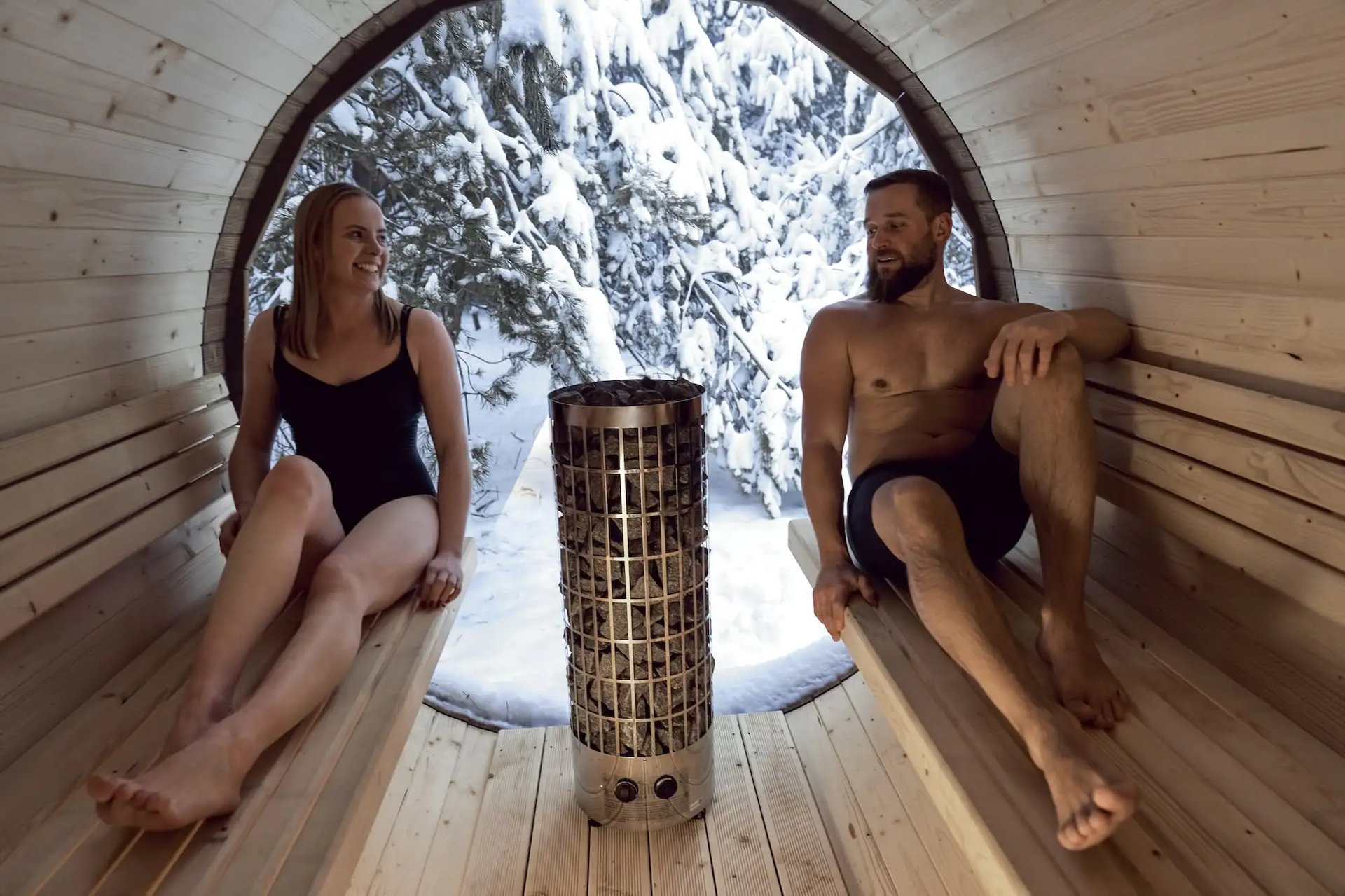
The Sauna Showdown: Electric Heater vs. Wood Heater


Saunas have long been revered for their ability to induce relaxation, promote relaxation, and boost overall well-being. However, when it comes to choosing the right heating source, there’s a clear divide: electric heaters and wood-fired heaters. While both options provide a warm and inviting sauna experience, they have distinct characteristics that appeal to different preferences and needs. Here’s a comprehensive comparison to help you decide which sauna heater is the best fit for your home.
Electric Sauna Heaters
Electric sauna heaters are the most common and convenient option for sauna enthusiasts. They offer a clean, easy-to-use experience and are typically more affordable than wood-fired heaters.
Pros:
Convenience: Electric heaters are effortless to operate and can be turned on and off with the touch of a button. There’s no need to worry about chopping wood or maintaining a fire.
Cleanliness: Electric saunas do not produce smoke or ashes, making them ideal for indoor installations and those sensitive to allergens.
Controlled Temperature: Electric heaters provide precise temperature control, allowing you to create the perfect sauna environment for your preferences.
Versatility: Electric saunas can be installed in various spaces, including basements, garages, and even outdoor saunas.
Wood-Fired Sauna Heaters
Cons:
Cost: Electric sauna heaters may be more expensive to operate than wood-fired heaters, particularly in areas with higher electricity rates.
Limited Atmosphere: Electric saunas lack the natural ambiance and aroma associated with wood-fired saunas.
Potential Fire Hazard: Electrical components and wiring require proper installation and maintenance to prevent potential fire hazards.
Pros:
Authentic Atmosphere: Wood-fired saunas recreate the authentic sauna experience, evoking the warmth and ambiance of traditional saunas.
Natural Heat: Wood-fired heaters produce a natural, radiant heat that is often perceived as being more therapeutic and relaxing.
Aroma Therapy: The burning of wood releases pleasant aromas that can contribute to a sense of relaxation and well-being.
Versatility: Wood-fired sauna heaters can be used in both indoor and outdoor saunas.
Wood-fired sauna heaters offer a traditional and immersive sauna experience, capturing the essence of Finnish sauna culture. They create a unique atmosphere with a crackling fire, a smoky aroma, and a warm, radiant heat.
Cons:
Maintenance: Wood-fired saunas require regular maintenance, including chopping wood, tending to the fire, and cleaning the ashes.
Safety Precautions: Wood-fired saunas need proper ventilation and safety measures to prevent smoke inhalation and potential fire hazards.
Controlled Temperature: Wood-fired heaters may not provide precise temperature control, requiring more experience to maintain a consistent sauna temperature.
Ultimately, the best sauna heater for you depends on your individual preferences, lifestyle, and budget. An electric heater is a great option if you prioritize convenience, cleanliness, and precise temperature control. For those seeking an authentic sauna experience with a traditional ambiance and natural heat, a wood-fired heater is preferred. Weigh the pros and cons of each option carefully to find the perfect match for your sauna retreat.
The Verdict




